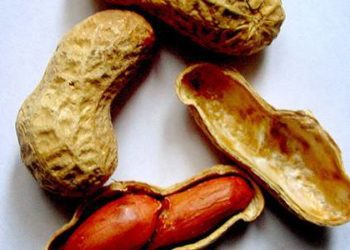Hydrolyzed infant formula may not reduce the risk of allergies or autoimmune disease
1. In a systematic review of 37 trials representing over 19 000 infants, the use of hydrolyzed infant formula demonstrated no significant reduction in subsequent risk of developing allergic or autoimmune diseases compared to cows’ milk.
Evidence Rating Level: 1 (Excellent)
Study Rundown: The prevalence of allergic and atopic conditions, such as atopic wheeze, asthma, and food allergies, have significantly increased in developed countries, affecting as much as 20% of the population in the United States. Nutritional guidelines from the United States and other developed countries have recommended the use of hydrolyzed infant formula in the first 4 to 6 months of life for the primary prevention of infant allergic diseases. However, there has been a paucity of reports analyzing the strength of evidence for these recommendations. The purpose of this systematic review was to investigate the risk of allergic or autoimmune disease in infants using hydrolyzed versus cows’ milk formula.
The study reviewed 37 eligible studies, comprised of over 19 000 infants, which compared the use of hydrolyzed versus cows’ milk formula in infants. At the conclusion of the study, there was no significant difference in the risk of allergic or autoimmune outcomes in infants between cows’ milk and partially or extensively hydrolyzed infant formula. Additionally, many of the eligible trials demonstrated evidence of industry conflicts of interest and unclear risk of bias. There was also evidence of publication bias for studies analyzing outcomes of wheeze and eczema. The results of this study challenge current guidelines in the United States and other developed nations regarding the benefits of hydrolyzed infant formula and highlight the need for additional independently funded studies to clarify the potential beneficial effect of hydrolyzed infant formula versus cows’ milk.
Click to read the study in BMJ
Click to read an accompanying editorial in BMJ
Relevant Reading: Formulas containing hydrolysed protein for prevention of allergy and food intolerance in infants
In-Depth [systematic review and meta-analysis]: The systematic review analyzed any intervention trials that included hydrolyzed formula of cows’ milk origin compared to any non-hydrolyzed cows’ milk formula. Trials were identified by extracting data from Medline, EMBASE, Web of Sciences, CENTRA, and LILACS databases between 1946 and 2015. Key exclusion criteria included trials that included hydrolyzed formula of milk other than cows’ milk. Overall, 37 intervention trials were included, which represented over 19,000 infants. The outcome of interest were atopic and autoimmune outcomes including atopic wheeze, eczema, allergic rhinitis, food allergy, type 1 diabetes mellitus, inflammatory bowel disease, psoriasis, and juvenile rheumatoid arthritis. Selection of study and data extraction were performed by two authors of the study via consensus. Quality assessment of studies were performed using the Cochrane risk of bias tool. At the conclusion of the study, no benefits were observed in using hydrolyzed formula compared to standard cows’ milk to reduce risk of allergic or autoimmune outcomes in infants. The odds ratio for developing eczema in infants from ages 0-4 was 0.84 (95%CI: 0.67 to 1.07; I2 = 30%) for partially hydrolyzed formula, 0.55 (95%CI: 0.28 to 1.09; I2 = 74%) for extensively hydrolyzed casein based formula, and 1.12 (95%CI: 0.88 to 1.42; I2 = 0%) whey-based extensively hydrolyzed formula.
Image: PD
©2015 2 Minute Medicine, Inc. All rights reserved. No works may be reproduced without expressed written consent from 2 Minute Medicine, Inc. Inquire about licensing here. No article should be construed as medical advice and is not intended as such by the authors or by 2 Minute Medicine, Inc.






